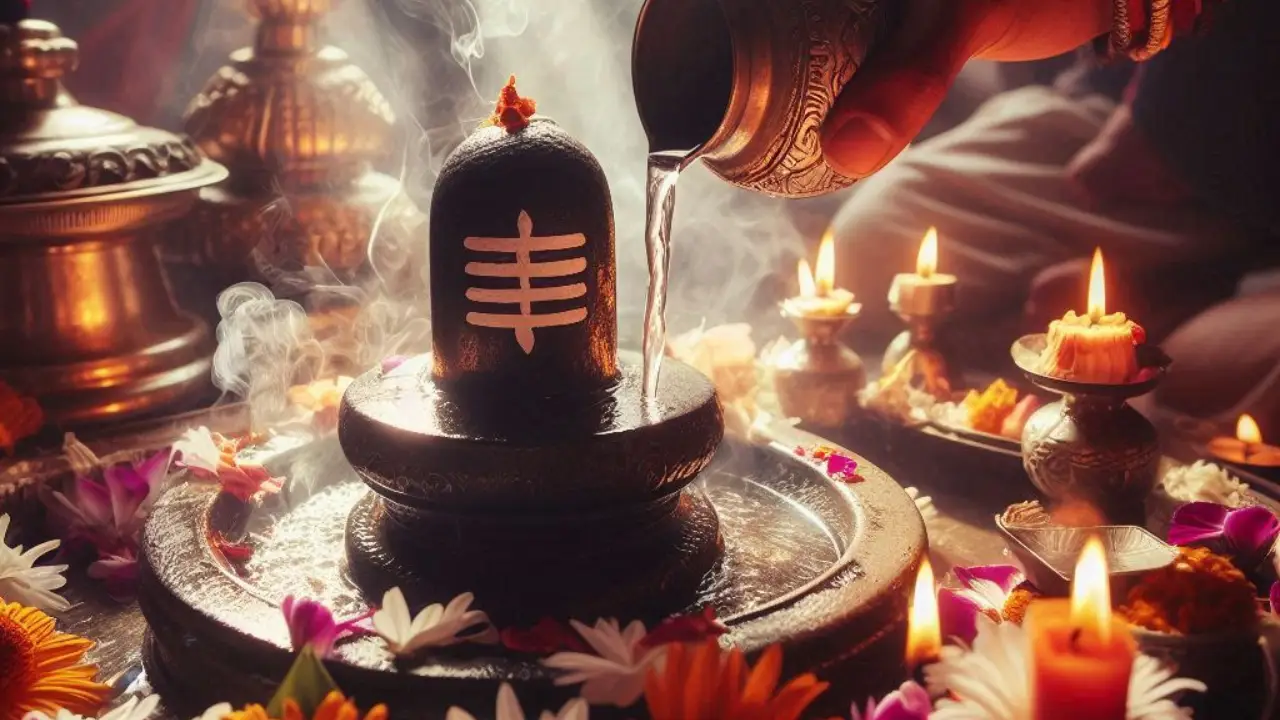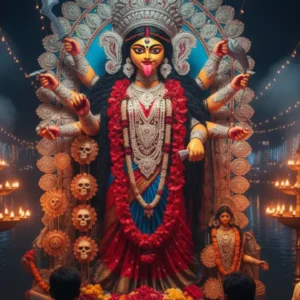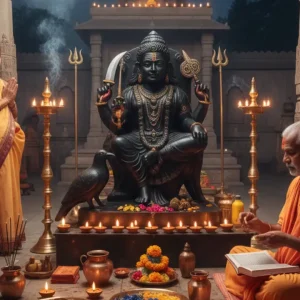Shravan Somvar, a series of Mondays dedicated to Lord Shiva during the month of Shravan, holds a special place in the hearts of Hindus. Observing the Shravan Somvar Vrat (fast) is a centuries-old tradition, steeped in mythology, devotion, and spiritual significance. This blog post delves into the reasons behind this observance, its spiritual importance, and the stories that bring this tradition to life.
The Spiritual Significance of Shravan Somvar
The month of Shravan, which usually falls between July and August, is considered highly auspicious in the Hindu calendar. During this time, the cosmos is believed to be more receptive to spiritual practices and prayers. Mondays in Shravan, known as Shravan Somvar, are dedicated to Lord Shiva, the deity of destruction and transformation.
Fasting on Shravan Somvar is a way to seek the blessings of Lord Shiva, cleanse the mind and body, and achieve spiritual growth. Devotees believe that observing this vrat brings peace, prosperity, and the fulfillment of desires. It is also an opportunity to practice self-discipline and devotion, deepening one’s connection with the divine.
Historical and Mythological Background
The significance of Shravan Somvar can be traced back to various stories and legends in Hindu mythology. One such story is about Goddess Parvati, who performed intense penance during Shravan to win the heart of Lord Shiva. Her devotion and perseverance paid off, and they were eventually married. This story inspires many women to observe the fast, hoping to find a good life partner or to strengthen their marital relationship.
Another legend speaks of the churning of the ocean (Samudra Manthan), where both gods and demons sought the nectar of immortality. During this process, a deadly poison, Halahala, emerged, threatening to destroy the universe. Lord Shiva consumed the poison to save the world, and the gods and goddesses dedicated the month of Shravan to honor his sacrifice.
The Rituals and Observances
Observing the Shravan Somvar Vrat involves various rituals and practices that are both spiritual and symbolic. Here’s a step-by-step guide to observing this vrat:
Morning Rituals: Devotees wake up early, bathe, and wear clean clothes. They then visit a Shiva temple or perform a small puja (prayer ritual) at home.
Fasting: The fast can be observed in different ways, ranging from a complete fast (without water) to consuming only fruits and milk. Some devotees also eat a single meal in the evening.
Puja and Offerings: Devotees offer water, milk, bilva leaves, fruits, and flowers to the Shiva Lingam, symbolizing purification and devotion.
Chanting and Prayers: Reciting Shiva mantras like “Om Namah Shivaya” and reading the Shiva Purana are common practices during the fast.
Evening Aarti: The day concludes with an aarti (a devotional song accompanied by the lighting of lamps), seeking Lord Shiva’s blessings.
Stories and Personal Narratives
To truly appreciate the essence of Shravan Somvar, let’s explore some personal stories and experiences of devotees.
Anjali’s Story: Anjali, a young woman from Mumbai, has been observing Shravan Somvar Vrat since her teenage years. She shares, “My mother taught me the importance of this vrat. Initially, I did it out of tradition, but over the years, I felt a deep connection with Lord Shiva. The peace and positivity I experience during this month are unparalleled.”
Ramesh’s Devotion: Ramesh, a businessman from Delhi, narrates his journey, “I started fasting on Shravan Somvar when my business was going through a tough phase. I found solace in prayers and fasting. Miraculously, things began to improve. I believe it’s not just about the rituals but the faith and sincerity with which you observe them.”
Modern Relevance and Practice
In today’s fast-paced world, observing Shravan Somvar Vrat might seem challenging, but many devotees find ways to incorporate this tradition into their busy lives. With the advent of technology, it has become easier to stay connected with spiritual practices. Online pujas, virtual satsangs (spiritual discourses), and digital reminders help devotees maintain their commitment.
The core essence of Shravan Somvar lies in its ability to foster a sense of discipline, devotion, and community. Whether it’s through fasting, prayers, or simply taking a moment to reflect on the teachings of Lord Shiva, this tradition continues to inspire millions.
Tips for Observing Shravan Somvar Vrat
Plan Your Day: Ensure you have a balanced diet before and after the fast to maintain energy levels.
Stay Hydrated: If you’re observing a fast that allows water, keep yourself hydrated, especially during the summer heat.
Spiritual Reading: Spend time reading spiritual texts or listening to discourses to keep your mind engaged in devotion.
Community Participation: Join local or online groups observing the fast. Sharing experiences and prayers can enhance the spiritual experience.
Mindful Practices: Use this time for meditation and self-reflection. It helps in attaining mental peace and clarity.
Embracing the Divine with Devotion
Shravan Somvar is more than just a ritualistic observance; it’s a journey of faith, devotion, and self-discovery. By fasting and praying, devotees seek the blessings of Lord Shiva, hoping to attain inner peace and fulfill their desires. The stories and experiences associated with this tradition bring to light the deep spiritual connection that millions of Hindus cherish.
As you embrace the practices of Shravan Somvar, may you find the divine grace of Lord Shiva illuminating your path. Share your thoughts, experiences, and stories in the comments below. Let’s continue this spiritual journey together.





